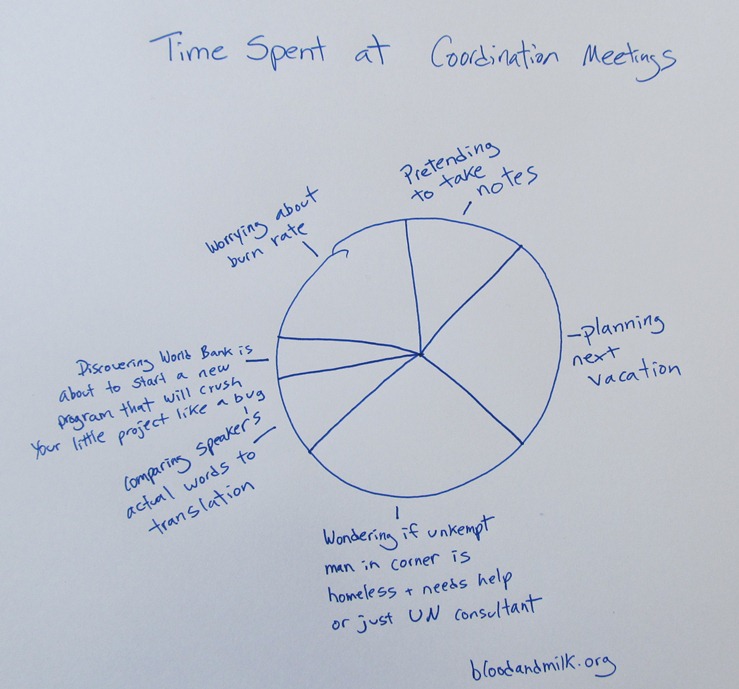This piece of a post was inspired by a post on the Humanosphere blog and some insightful comments on twitter from Brett Keller. The first time I started the draft, I tried to recap everything and it was boring. So follow the links if you like, but they’re not strictly necessary.
One of the hardest things about development work is that it exists permanently in a shade of grey. All projects do harm. My own belief is that we address that by making sure the good we do outweighs it, but it’s not like that’s easy. And it means you start in the grey.
Every choice we make after that is grey, too. Economists, as Brett pointed out, expect that people will consistently make the best, most profitable choices. Public health professionals tend to roll the other way, assuming people will make destructive, short-sighted choices. Development people live in the mushy middle, with people who make good choices and bad choices for reasons you never quite understand.
Does aid work? Who knows. It’s the wrong question. Can aid work? Yes. That one I can answer. Aid can fail, too. At any given moment, do you know if your intervention is succeeding or failing? Maybe. Your monitoring and evaluation data helps a little. But it’s going to take years to see if your project has actual long-term impact. Last quarter’s M&E results won’t help with that.
It’s a frustrating slog, and you spend your career doing it.
…and that’s as far as I got, folks. Anyone have any idea what should come next?



